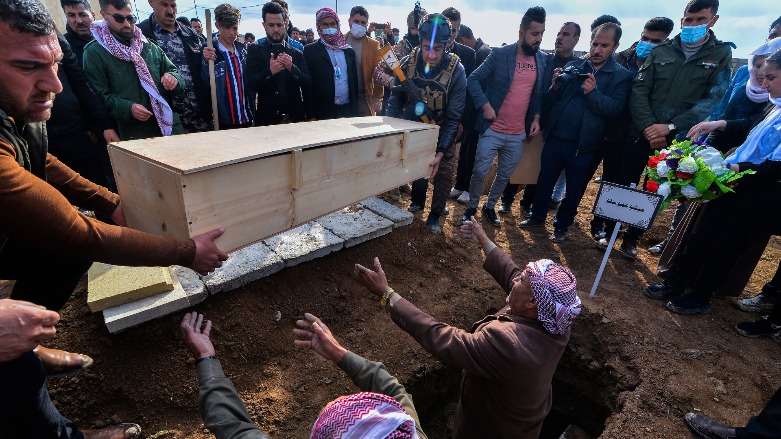Petition calls on Germany to formally recognize Yezidi genocide

ERBIL (Kurdistan 24) - An official petition is calling on the German government to formally recognize ISIS crimes against the Yezidi (Ezidi) community starting in 2014 in Iraq’s disputed district of Sinjar (Shingal) as genocide.
So far, the petition has so far attracted 9,148 signatures. According to reporting by Deutsche Welle, such a measure needs to attract more than 50,000 signatures to get a public hearing in the German parliament.
“It is astonishing that this petition, which is so important for coming to terms with the genocide against the Yezidi (Ezidi) people, is hardly noticed and only few have signed it,” Rosa Burç, a Ph.D. researcher of the Center on Social Movement Studies (COSMOS) at Scuola Normale Superiore in Florence, Italy, wrote on Twitter.
“The largest Yezidi (Ezidi) diaspora lives in Germany - where is the support?”
Pari Ibrahim, the Founder and Executive Director of the Free Yezidi Foundation (FYF), told Kurdistan 24 that genocide recognition has been a primary and fcentral goal for the Yezidi community.
“It is not enough, of course, but it is the first step that is required if we are to accurately acknowledge what happened and pursue justice, accountability, reparations, and recovery. Germany has been a leader in the pursuit of justice after the Yezidi Genocide, so recognition is natural and appropriate.”
Murad Ismael, president and co-founder of the Sinjar Academy, told Kurdistan 24 also that “a recognition from Germany is particularly important, as today it’s the second Yazidi homeland with more than 200,000 living there.”
“For this reason we want Germany to play a larger role in helping Yazidis protect themselves and their culture whether in Germany or in the Yazidi ancestral lands,” he added.
He also said that the Yezidi community “sees the recognition as an acknowledgment of what happened and respect to their collective suffering, it also makes them feel the World does care about them and when the next threat comes, it is likely Yazidis won’t be alone.”
Last summer, the Dutch and Belgium government recognized the crimes ISIS committed against the Yezidi community as genocide.
The emergence of the Islamic State and its violent assault on the Yezidi-majority city of Sinjarl in 2014 led to the displacement of hundreds of thousands of members of the community. Most of them fled to the Kurdistan Region, while others resettled to neighboring countries in the region or to Western states.
Others were not as lucky and remained stranded in the war zone, where they were subjected to atrocities and mass executions at the hands of the extremist group for years. ISIS militants forced women and girls into sexual slavery; kidnapped their children; forced religious conversions; executed scores of men; and abused, sold, and trafficked women and girls across the areas they controlled in Iraq and Syria.
Thousands of members of the beleaguered community remain missing still.
Read More: 80 organizations, experts urge rescue of Yezidis still missing after being kidnapped by ISISLast week, 80 organizations and experts called on world leaders to ensure that missing Yezidi women and children kidnapped since 2014 by ISIS are located and safely reunited with their families.
"In Germany live about 220,000 Ezidis,"Dr. Jan Ilhan Kizilhan, an author and Kurdish-German psychologist who treats Yezidi refugees, told Kurdistan 24. "Since 2014, more than 80,000 Ezidis have fled from Kurdistan and Iraq to Germany due to the genocide by the IS (ISIS). Thus, the largest Yezidi community outside their homeland lives in Germany."
Kizilhan continued, "Therefore, it is important that the genocide of the Ezidis, who have become German citizens, is recognized and thus the injustice is given a name. This also means a political commitment to help the Ezidis in Kurdistan and Shingal in their reconstruction and return."
"Unfortunately," he concluded, "many Ezidis do not have access to the Internet or do not know how to sign this petition."